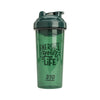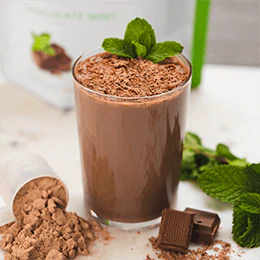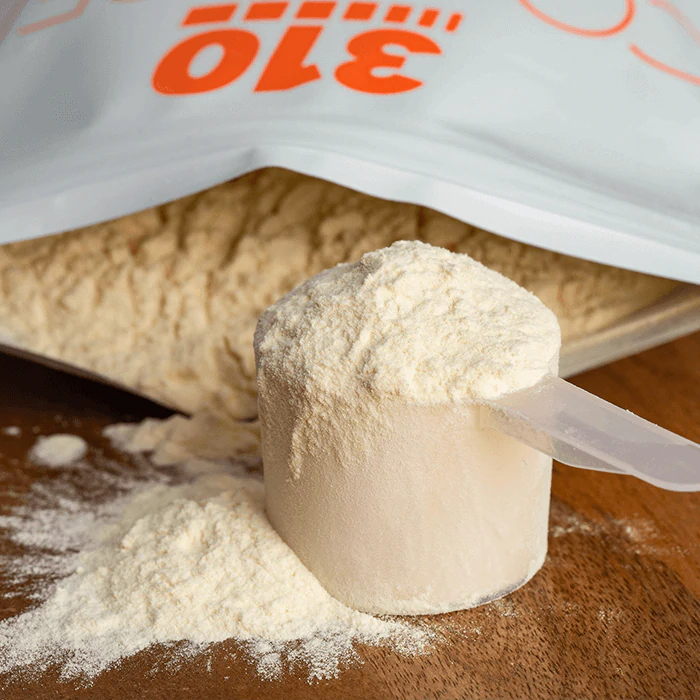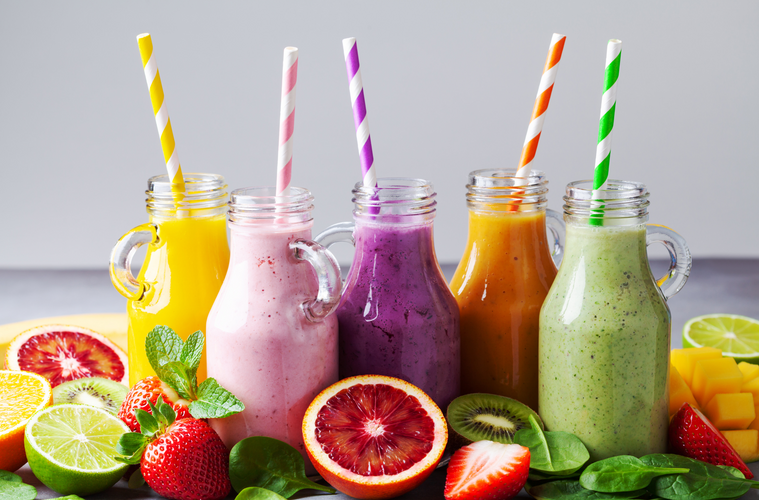When choosing the right meal replacement shake, there are a number of different factors that you’re evaluating. You’re looking for the right type of protein, solid nutritional facts, and limited sugar. But, have you ever thought to check how much fiber is in your meal replacement shake?
Fiber can have important health benefits for those looking to lose weight and is a critical component of a healthy diet.
Meal Replacements Shakes and the Importance of Fiber

When you’re trying to lose weight, it can seem like you’re hungry again 5 minutes after eating and that every food is just a temptation screaming your name. Fiber can support your weight loss journey by helping to keep you feeling full longer, reducing cravings, and controlling blood sugar levels.
According to the Institute of Medicine and USDA, women should eat between 21 and 25 grams of fiber per day, while men should aim to consume 30 to 38 grams per day. Eating a diet high in fiber might give you visions of cruciferous vegetables and oats, but there are tons of delicious, high fiber food options.
All fruits, vegetables, and legumes contain some fiber, but here are some of the contenders for highest fiber foods:
- Black beans: 15 grams per cup
- Split peas: 16 grams per cup
- Chickpeas: 7 grams per cup
- Raspberries: 8 grams per cup
- Broccoli: 5 grams per cup
- Whole wheat spaghetti: 5 grams per cup
By simply increasing your intake of fiber, you can better support your weight loss goals. That’s why it’s important to look for meal replacement shakes that include plenty of fiber to help you stay feeling full and reach your goal weight.
Importance of Fiber for Weight Loss

Fiber is an important part of any diet, especially for those looking to lose weight. A study in Annals of Internal Medicine found that eating 30 grams of fiber each day can help with weight loss, lowering blood pressure, and improving blood sugar regulation as well as other, more complicated diets.
Here’s how fiber can help support your weight loss journey.
Slows Down Digestion
Fiber comes from plants and is a form of carbohydrate. But, no need to worry about this carb, it’s actually a beneficial part of your diet. Fiber can’t be broken down or absorbed by your digestive system. While your body works to digest your food and absorb nutrients, fiber slows down the digestion process.
By slowing down digestion, fiber helps to keep your bowel movements regular and keeps you feeling full longer.
Encourages “Gut Bacteria Diversity"
Gut bacteria diversity - or having multiple species of good, helpful bacteria in your gut that contribute to various health benefits - is linked to greater wellness and a potential lower risk of sickness and disease.
Fiber has been shown to play a role in increasing gut bacteria diversity. More gut bacteria diversity could help improve overall health and prevent weight gain.
Suppresses Appetite
One of the natural consequences of fiber slowing down digestion is that it leaves you feeling full longer, which can act as a natural appetite suppressant. When you’re not feeling hungry, you’re less likely to eat and will therefore naturally reduce your calorie intake.
Fiber slows down digestion, but it’s also been shown to suppress hunger hormones and increase production of fullness hormones.
Ghrelin is a natural hormone produced by your body to stimulate hunger. Fiber can reduce ghrelin production, so you don’t feel hungry as often. It can also increase production of hormones that signal to your brain that your stomach is full, which can also reduce hunger.
Helps Control Blood Sugar
Another benefit of fiber slowing down digestion is that it can help regulate and slow the absorption of sugar. By slowing down sugar absorption, fiber helps your body to better regulate blood sugar levels, reducing blood sugar spikes and crashes. Better blood sugar regulation may also limit your chances of developing certain diseases.
Another effect of better-regulated blood sugar is less hunger. Fiber helps your body to slow the release of insulin, which has also been linked with fewer hunger signals.
Supports Heart Health
Eating a high fiber diet has been shown to lower “bad” cholesterol levels and reduce blood pressure, both of which can improve overall heart health. Studies of high fiber diets and heart health have concluded that eating plenty of fiber can improve overall heart health.
Aids In Weight Loss
Overall, getting plenty of fiber in your diet can help to support your weight loss goals. While fiber doesn’t necessarily cause you to lose weight, it can help you to feel full longer and curb cravings by slowing digestion and regulating your blood sugar.
All of these combined can help you to stick to a lower-calorie diet while continuing to eat healthy, nutritionally-dense foods. Research has found that sticking to a high fiber diet can help participants to lose more weight than those who consume less fiber.
How Much Fiber Should Be In Your Meal Replacement Shake?
Going back to the recommendations we shared for how much fiber you should eat daily, women should aim to ingest 21 to 25 grams of fiber per day, while men need 30 to 38 grams.
Breaking it down a little more, for women that’s about 5g per meal/snack (assuming you are eating 3 meals per day and 2 snacks). And for men, that’s about 6-7g per meal/snack on a 3-meal and 2-snack plan.
The important thing is that you meet your daily allotment, but how you do it is completely up to you. You can easily get there by making wise dietary choices that include plenty of high fiber foods in your meals and snacks - including in your meal replacement shakes.
At Least 5 Grams of Fiber for Meal Replacement Shakes
When you’re looking for a meal replacement shake, you want to ensure you’re choosing something with plenty of fiber, which will help you to stay full and reduce cravings. To get your daily recommended amount of fiber, you want to look for a meal replacement shake with at least 5 grams of fiber.
The great thing about a meal replacement shake that is rich in fiber is that you have a great starting point to build off of with your meals. Since it’s recommended to consume 2 meal replacement shakes per day in place of meals for weight loss, and 1 per day for weight maintenance, you can ensure those meals will help you meet your fiber goals.
Plus, it’s easy to add other high fiber ingredients into your meal replacement shake smoothies, along with eating some fiber-rich snacks during the day.
Some great smoothie add-ins or fiber-rich snacks include…
- A half-cup of raspberries: 4 grams of fiber
- A medium sized banana: 3 grams of fiber
- 1 cup of raw carrots: 3 grams of fiber
- 3 Tablespoons of almonds: 4 grams of fiber
In conclusion, when it comes to meal replacement shakes and low-calorie diets, protein typically gets all the love. But, fiber plays a very important role in slowing digestion which can leave you feeling fuller longer and can help regulate hunger hormones and blood sugar levels to keep cravings at bay.
Fiber is therefore essential for maintaining optimal wellness and for losing weight, so make sure you’re getting enough into your daily diet to help you meet your goals!















